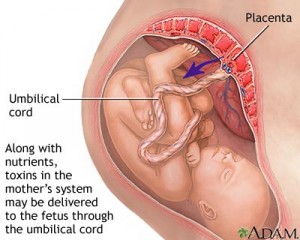Congratulations!
You are now entering the wonderful and exciting journey to motherhood. BabiesDirect is here to help you through this journey. We know that when you become pregnant a lot of questions come up and we want to assist you with getting your questions answered.
- The Trimesters
- Pregnancy and Nutrition
- Make a Birth Plan
- Free Online Pregnancy Tools
- Picking The Right Caregiver for your baby’s birth
- Preparing the Nursery
- Pregnancy F.A.Q.
- Ultrasounds
- Tests During Pregnancy
- Preconception Tools
- Ultimate Breastfeeding Guide
- Amazing Birth Stories
During the 40 weeks of pregnancy, as your baby is growing inside the uterus, there are many things you can do to ensure good health for both you and your baby.
- Signs & Symptoms:
As the baby grows, your body will go through many changes. You may have nausea and vomiting during early pregnancy. Your breasts will get larger and can make you uncomfortable. Stretch marks may show up on your skin. You may have back and leg aches from the weight of the growing baby. You may have have mood changes going from joy to mild depression. These changes are normal but talk to your doctor if you are depressed all the time. More… - Picking The Right Caregiver
If you’re pregnant, or thinking about getting pregnant, it’s extremely important that you have access to good medical care and a primary care-giver with whom you feel comfortable. As many studies have shown, early and adequate medical care is crucial for your own health and your baby’s.
Prenatal Appointments & Tests During Pregnancy:
Your doctor will want to see you monthly during most of your pregnancy. During the last 8 weeks, your visits will be more frequent. Preeclampsia maybe a concern at this point. At each visit, you will be weighed and have your blood pressure checked. Your urine will be tested and the baby’s growth will be checked. At some visits you may get an ultrasound, a painless test that shows the baby’s growth and helps determine the due date. You may also need additional blood tests during the pregnancy. There will also be special tests done at certain times during the pregnancy to determine possible birth defects.
Nutrition (See Chart):
The first step towards healthy eating is to evaluate the foods in your daily diet. Focus on healthy foods. What you eat feeds both you and the baby. Pregnant women are often concerned about gaining weight, and are tempted to diet. Don’t. You need the extra calories–about 300 more than you usually eat–to feed your developing baby. Choose from each of these food groups every day (see more information below):
- Fruits and vegetables
- Whole-grain breads and cereals
- Meat, fish, poultry, eggs, nuts and beans
- Milk and milk products and cheese.
Drink at least 6 to 8 glasses of liquids such as milk, water or juice. Cut down on drinks that have caffeine in them such as coffee, tea and cola. Also you need to include a multivitamin in your diet to make sure that you will get the recommended 0.8 mg of folic acid daily. Recent studies find that folic acid may help to prevent certain birth defects, called neural tube defects. Check with your doctor before taking vitamins because only your doctor will be able tell you what vitamins your body needs and what dosages are safe. Your doctor will also tell you about how much weight you should gain. Too much or too little weight gain can harm your baby.
You will need to follow a balanced, healthy diet to make sure that you get the proper nutrition needed for your baby to grow normally. A balanced, healthy diet means you consume a variety of types of foods that contain an adequate supply of essential nutrients, including proteins, fats, carbohydrates, vitamins, and minerals. To determine whether your diet is balanced, you need to analyze everything you eat to see whether each food item provides the recommended amounts of each nutrient. The easiest way is to use the concept of food groups.
The five basic food groups are (1) bread, cereal, rice, and pasta, (2) vegetables, (3) fruits, (4) milk, yogurt, and cheese, and (5) meat, poultry, fish, dry beans, eggs, and nuts. The fruit and vegetable groups supply us with vitamins A and C and some minerals, carbohydrates, and fiber. Foods in the grain group provide B vitamins, iron, fiber, and carbohydrates. The milk group gives us calcium, protein, and vitamin B2. The meat group supplies protein, niacin, thiamine, and iron.
During pregnancy, you’ll need to increase servings from the milk group to 4 and servings from the meat group to 3. Variety helps to ensure that you’re getting all the necessary nutrients, so try not to eat the same food from each group every day. Serving sizes are also very important. You need to know what is the normal size for a serving of milk or meat for example. See our chart for proper servings sizes in each food group.
Exercise:
Pregnancy is not a time to get in shape, but it is a good time to stay healthy and in shape. Regular exercise during pregnancy is important. It will help you feel better and keep your in good physical shape, making your labor and delivery easier. If you do not have a regular exercise program, a regular walking program is a good thing to start. Start exercising slowly if you weren’t active before pregnancy. Check with your doctor to find out what is the best exercise program for you during pregnancy. Also do not start a new exercise before consulting your doctor. Do not do any exercise that could hurt you or the baby. Stop right away if you feel pain.
Douching:
Do not douche during pregnancy. Talk to your doctor if you have questions about douching.
Hot tubs:
Do not sit in a hot tub or sauna while you are pregnant.
Sex:
You can have sex until shortly before your labor starts unless there are complications. Your doctor may tell you to limit or not to have sex if you are bleeding from vagina or having pain in your abdomen or vagina.
Work:
If you are healthy, you can work until just before labor. Check with your doctor if you work around poisonous or harmful substances. After delivery, your doctor will let you know when you can return to work.
Medicines:
Do not take any medicine without first checking with your doctor. This includes drugs that can be bought over-the counter such as aspirin or acetaminophen.
